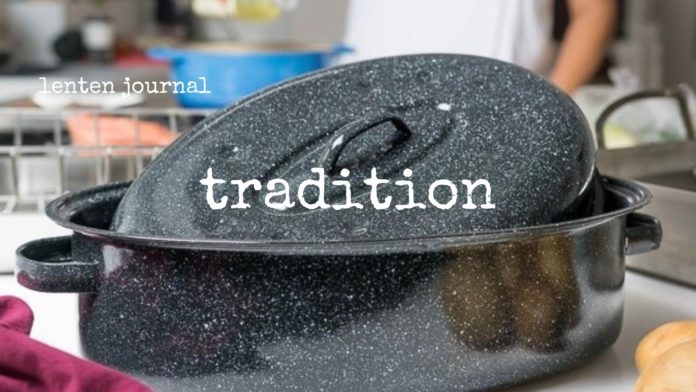I was rummaging around in The Hedgehog Review–mostly because I love hedgehogs and it’s called The Hedgehog Review–and came across an article titled “The Living Faith of the Dead,” which was a book review and had nothing to do with hedgehogs. The site, by the way, is based at the University of Virginia and hosts an academic journal by the same name. (I’d love to know the story behind that.) The title of the article came was taken from a book by theologian Jaroslav Pelikan, “Tradition is the living faith of the dead, traditionalism is the dead faith of the living,”
Tradition, of course, is larger than religion, but when it comes to “the way we do things,” religious institutions large and small can get dug in emotionally, politically, and theologically on everything from communion to coffee hour. The word means “handing down” or “handing over.” The image that comes to my mind with that definition is passing tradition along like we pass favorite family recipes, but that’s not always how it works.
A sermon illustration I heard from my dad when I was young has stuck with me. (It is a well-traveled story, so I am sure many of you know a version of it, too.) A newly-married couple were preparing one of their first meals. They didn’t have much money, but they had splurged on a roast. The husband pulled out the roasting pan and then picked up the big knife to chop off about two inches of one side of the roast. The wife stopped him.
“What are you doing?” she asked.
“This is how my mom did it,” he answered. That was not a good enough explanation for throwing away good beef, so they called his mother to ask why. She said it was how her mother had done, so they called Grandma with the same question.
“My roasting pan was too small.”
Much is lost when we aren’t attentive to the things we hand down. Good questions should go along with the exchange. In that spirit, I share what I learned today about the etymology of the word, tradition.
from Latin traditionem (nominative traditio) “a delivering up, surrender, a handing down, a giving up,” noun of action from past-participle stem of tradere “deliver, hand over,” from trans- “over” + dare “to give” (from PIE root *do- “to give”). The word is a doublet of treason.
When I looked up the word, treason I found this.
from Latin traditionem (nominative traditio) “delivery, surrender, a handing down, a giving up,” noun of action from past-participle stem of tradere “deliver, hand over,” from trans- “over” + dare “to give” (from PIE root *do- “to give”). A doublet of tradition.
I’m still thinking about that shared genealogy, as well as the connection between handing down and giving up. It seems to me we can find more than one example of things handed down that turned from blessing to betrayal, particularly (again) when we look at religious institutions, but my point tonight is not about those institutions (though I could write that post) as much as how crucial our questions are to how we carry on what has been handed down, and also when, perhaps, we need to give up.
Holy Week and Passover are both filled with traditions. I know the former much better than the latter. In the wake of our past and persistent pandemic, most of our traditions connected to worship were difficult to deliver. Across various denominations, I read of people struggling with how to share Communion. Did it count if all you had at home were Ritz Crackers and a Coke? Did an ordained person have to bless the elements and then hand them out somehow?
Different denominations, even congregations, answered those questions in different ways. At the heart of the struggle was a question I am not sure we always answered well: What is the heart of what we are handing down?
That question is alive, again, for me this year. We have The Things We Do Every Year, which are not automatically stale or ineffective, but it the heart of what we are handing down in the method or the meaning–or a bit of both. When the tradition is tied to method, we often hang onto it out of fear that trying something new might not work. But that definition reduces tradition to the technicalities of how we do things–we’re back to talking about roasting pans.
The real meat is in Jesus’ words: “I give you a new commandment: Love each other. Just as I have loved you, so you also must love each other. This is how everyone will know that you are my disciples, when you love each other.”
Love each other just as I have loved you.
Each other means everybody. EVERYBODY. What has been handed down to us is not about protecting doctrine or perpetuating the Church, it is about love that is not confined or condemning. Like Paul said, “It bears all things, believes all things, hopes all things, endures all things.”
Forget how big the pan is. Invite everyone to dinner.
Peace,
Milton

We’ll just need more small pans. We’re back at the story of the stone in the soup…
Well said, my friend.